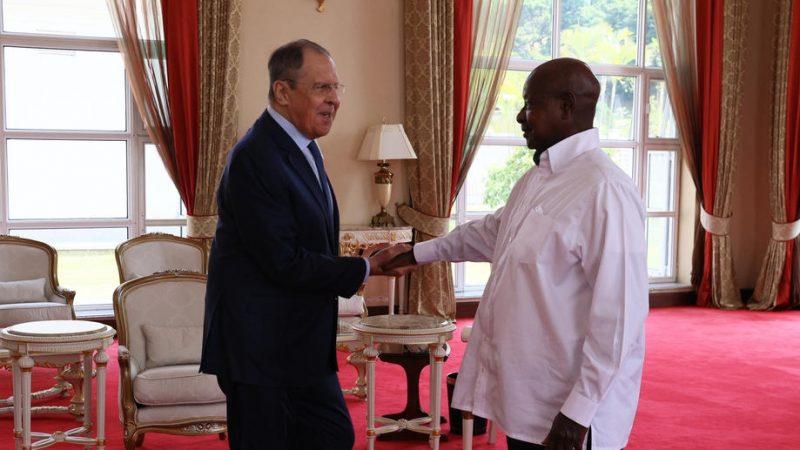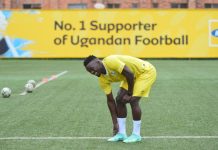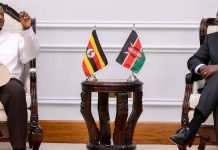By Faridah N Kulumba
Africa-Press – Uganda. On Monday 25th July 2022, Russia’s Foreign Minister Sergey Lavrov arrived in Uganda on an official visit, the third stop on an African tour to strengthen ties with the continent and seek support against Western pressure over Moscow’s invasion of Ukraine.
Defending the meeting
On Tuesday the president of Uganda held a meeting with Mr. Lavrov at State House Entebbe. President Museveni called for stronger bilateral relations, especially in the areas of defense and security, economic and technical cooperation with Russia. President Museveni based on that to defend Lavrov’s visit to Uganda by saying that Russia has had good relations with Uganda for the last 100 years, and therefore, Uganda can never take a position against Russia.
Why does Museveni have to defend Lavrov’s visit?
President Museveni’s explanation followed the activists protesting Lavrov’s visit to Uganda showing their distress due to the Russian invasion of Ukraine. Museveni defended the meeting by saying that Uganda wants to make its own enemies not fight other people’s enemies. According to President Museveni, his country does not believe in being enemies with enemies of any country.
Uganda is one of several countries in East Africa that is suffering from food shortages following a severe drought. Rising inflation fueled by the war in Ukraine has further stressed food supplies in the region.
A friend in need
Uganda enjoys warm bilateral relations with Moscow, bolstered by President Museveni’s East-West balancing act. In May this year, Uganda was among the 17 African countries out of 193 that voted to abstain—remain neutral—during the UN General Assembly’s emergency session convened to call for an immediate cessation of violence and withdrawal of the Russian military from Ukraine. Western nations blame Russia’s war and its Black Sea blockade of Ukrainian grain for the soaring global food prices that are fueling risks of famine in Africa.
Behind Lavrov’s trip to Africa
It is certain that Mr. Lavrov’s tour to some African nations including the Democratic Republic of Congo (DRC), Egypt, and Ethiopia is aimed part of seeking allies, as Russia is under intense Western pressure for its invasion of Ukraine. In a column published in the four countries Lavrov visited, Lavrov wrote while appreciating the considered African position as to the situation in and around Ukraine. He described the pressure being put on African nations to join Western sanctions as unprecedented.
How African countries gain from Lavrov’s tour
Russia’s expanding influence in Africa in recent years is mostly a result of Moscow’s use of unofficial means–deploying mercenaries, disinformation campaigns, arms for resources deals, and trafficking of precious metals. These low-cost, high-impact tools are typically employed in support of isolated African leaders with dubious legitimacy.
Russian backing of beleaguered leaders in the Central African Republic (CAR), Mali, and Sudan has been vital to keeping these actors in power. Russia’s asymmetric approach to gaining influence in Africa is also notable in that these “partnerships” are with individual leaders. Russia is propping up – and not with the broader public. It’s about elite co-option more than traditional bilateral cooperation.
The outcome of the meeting between Russia and Uganda
Strengthening ties- The two leaders discussed aspects of bilateral cooperation based on principled agreements reached by President Museveni and Russian President Vladimir Putin in the course of their regular contacts, as well as conflict resolution issues in Africa and items on the international agenda.
Economic cooperation-The two countries agreed to cooperate in a range of fields including space, energy, agriculture, vaccines, mining, research and education, geological exploration, cyber, and telecommunications. And they also discussed projects related to cooperation in using nuclear technology.
Health issues- President Museveni and Lavrov also reached an agreement to consider the creation of a laboratory with the help of Russian specialists to jointly study matters of prevention and control of epidemiological diseases.
Mission execution -Both parties agreed to work through those issues specifically and with an eye toward achieving practical results by the next meeting of the Intergovernmental Russian-Uganda Commission on Economic Scientific and Technical Cooperation which will take place in October.
Russia’s benefits to Uganda
In October 1952, Uganda and the Soviet Union established diplomatic relations. In 1954, the two nations signed a trade agreement on economic and technical cooperation, which provided for a loan of 14 million rubles to Uganda. Russian officers regularly assist Uganda to maintain military equipment and authorities recently gave a contract to a Russian firm that will install tracking devices in military vehicles to combat violent crime.
It may take years for African countries to recover from the reputational damage of embracing the Russian worldview that rule of law is arbitrary.
For More News And Analysis About Uganda Follow Africa-Press






